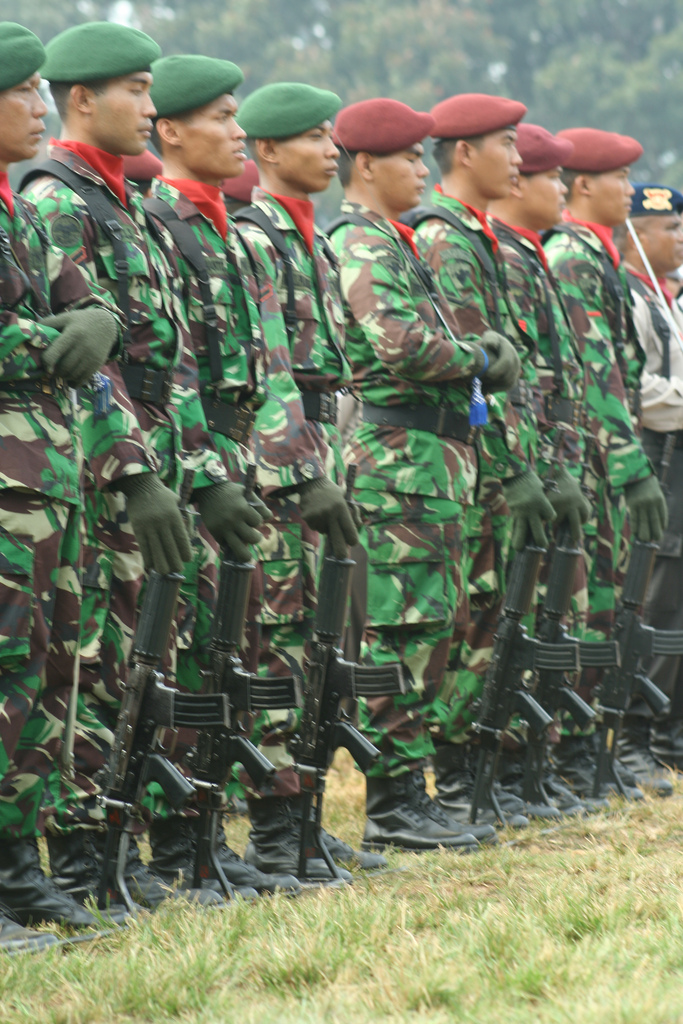In a bold and controversial move, Indonesia’s parliament has passed an amendment to its armed forces law, allowing military officers to serve in more civilian government positions. The decision, supported by President Prabowo Subianto’s coalition, has triggered intense debate across the country, raising old fears about the military’s growing influence in national affairs.
With a simple yet symbolic bang of the gavel, House Speaker Puan Maharani announced the new law’s passage as lawmakers unanimously voiced their approval. But behind the parliamentary formality lies a decision that could reshape Indonesia’s democratic structure.
What Does the New Law Mean?
Until now, Indonesia’s military personnel could only occupy roles in 10 government agencies, including the Ministry of Defence. If a military officer wanted to join other civilian departments, they were required to resign or retire from active duty. This separation was designed to maintain clear boundaries between civilian governance and the military—a principle Indonesia embraced after shaking off its authoritarian past.
However, the revised law changes the equation. Now, active-duty military officers can serve in 14 government institutions, expanding their reach to powerful bodies like the Attorney General’s Office and the National Disaster Mitigation Agency.
Supporters argue this change is long overdue. They believe that military discipline, efficiency, and crisis management skills can benefit civilian governance, especially in sectors like disaster response where quick, coordinated action is critical. Military chief General Agus Subiyanto even called the previous version of the law “outdated” and “irrelevant” for a fast-changing country like Indonesia.
But critics see the move differently — as a dangerous step backward.
Memories of a Military-Dominated Past
Indonesia’s journey to democracy has been long and painful, shaped by decades of military dominance during Suharto’s authoritarian “New Order” regime. For 32 years, Indonesia’s generals held sway not only in defense but also in politics, business, and the judiciary. The military’s “dual function” doctrine allowed it to operate far beyond its defense mandate, often with devastating consequences for human rights and political freedom.
The 1998 fall of Suharto brought sweeping reforms aimed at ending the military’s hold on civilian life. The military retreated from politics, and laws were introduced to ensure soldiers stayed out of civilian institutions unless they left the service. For many Indonesians, this separation became a symbol of their hard-won democracy.
Now, human rights groups fear the new amendment could erode those gains.
Critics Sound the Alarm
“The government is inviting the military back into civilian life,” said Andreas Harsono, senior Indonesia researcher at Human Rights Watch. “It’s a dangerous move that could undermine human rights, democracy, and accountability.”
Harsono and other critics argue that allowing active-duty soldiers to serve in powerful institutions like the Attorney General’s Office opens the door to conflicts of interest and weakens civilian oversight. There are concerns that military officers in such roles might prioritize loyalty to their chain of command over the law or public interest.
What worries many is not just where military officers will serve, but what it signals—a potential return to a mindset where the military sees itself as the nation’s guiding force, not just its protector.
Prabowo’s Shadow Looms Large
The person at the center of this controversy is President Prabowo Subianto — a former general and Suharto’s son-in-law. His rise to power was always likely to reignite debates about the military’s place in government.
Prabowo’s supporters argue that his military background equips him to make tough decisions and strengthen national security. They insist that expanding military roles in government is about pragmatism, not politics. Indonesia faces real challenges — from natural disasters to geopolitical tensions — and the military, they say, is well-equipped to handle these.
But critics see it differently. To them, Prabowo’s backing of this amendment reflects a personal desire to rebuild the military’s influence, aligning with his old connections and beliefs. Many fear this is just the beginning of a broader strategy to bring the armed forces back into political life.
What’s at Stake?
Indonesia is a vibrant democracy — the third-largest in the world — but its democratic institutions remain young and, at times, fragile. Expanding the military’s presence in civilian roles risks tipping that balance.
Beyond concerns about human rights, there are practical issues too. Military officers are trained for combat and discipline, not necessarily for managing public policy, legal frameworks, or complex social programs. Placing them in key civilian roles could lead to clashes in governance styles and decision-making priorities.
Moreover, there’s the question of accountability. Civilian institutions operate under laws that ensure transparency and public scrutiny. The military, by its nature, operates with confidentiality and hierarchy. Merging these two worlds could blur lines of responsibility, making it harder to hold anyone accountable when things go wrong.

A Regional and Global Trend?
Indonesia is not alone in this dilemma. Across the world, countries are grappling with the military’s role in governance. In some places, like Myanmar, military overreach has led to outright dictatorship and civil war. Elsewhere, armed forces have taken on more public responsibilities, sometimes with mixed results.
For Indonesia, the challenge will be finding the right balance — harnessing the military’s strengths without sacrificing the democratic principles it fought hard to achieve.
What Comes Next?
The new law is now in place, but the real test will be in its implementation. Will the government create strict guidelines to prevent abuse of power? Will there be clear limits on how and where military officers can serve? Will civilian oversight remain strong?
These questions are critical because once military influence expands, history shows it’s rarely easy to pull back.
Civil society groups, legal experts, and human rights defenders are already calling for close monitoring of appointments and a review mechanism to ensure the military’s expanded role doesn’t spiral out of control.
Final Thoughts
Indonesia’s decision to expand the military’s role in civilian government is more than just a legal amendment — it’s a statement about the country’s future direction. Is it moving toward a pragmatic, security-focused state? Or is it inching back toward its authoritarian past?
For now, the answer remains uncertain. What is clear, though, is that this decision has reopened an important national conversation about power, democracy, and the role of the military in a modern, democratic Indonesia.
The coming years will reveal whether this was a necessary adjustment to meet new challenges or the first step down a dangerous path.










